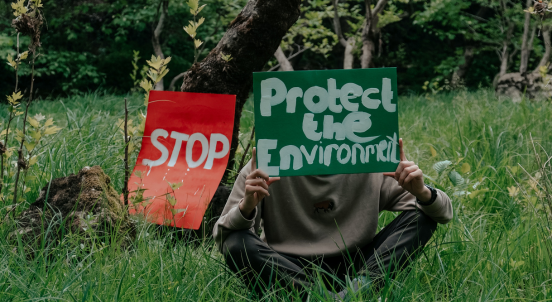
In an era where environmental consciousness is at its peak, the efforts of various activists and organizations to protect the planet are commendable. However, some extreme actions have arisen in the name of environmental protection, with groups like Just Stop Oil resorting to protests and demonstrations that border on eco-vandalism. Many of us are familiar with the tactics of Just Stop Oil, with the group being behind the most publicized and shocking events such as throwing soup at Vincent van Gogh's Sunflowers, at the National Gallery in London, gluing their hands to the airport runway in Dusseldorf, Germany, and recently disrupting the first play of the Wimbledon tennis match by throwing confetti and sitting on the field. Here we will explore the concept of eco-vandalism and discuss why such approaches might not actually be helpful for the environment or effective in conveying their message.

What exactly is eco-vandalism? It can be defined as the intentional destruction or sabotage of property, infrastructure, or industries perceived to harm the environment. While it is essential to raise awareness about environmental issues and advocate for responsible actions, eco-vandalism often leads to negative consequences and hinders the very progress it aims to achieve, creating an almost counterproductive result of protests.
Just Stop Oil is an environmental activist group that opposes the oil industry and its impact on climate change. While their intentions to address the pressing issue of climate change are noble, some of their tactics involve illegal occupations of oil facilities, chaining themselves to machinery, and sabotaging pipelines. While such actions may garner media attention, they risk causing damage to both the environment and people.
The Fallacy of Eco-Vandalism
Engaging in acts of vandalism or sabotage can lead to unintended environmental consequences. For instance, disrupting pipelines can result in oil spills, contaminating water sources and causing harm to wildlife. This contradicts the very objective of environmental protection these activists are fighting for.
Eco-vandalism often alienates the general public and potential allies who might otherwise be sympathetic to the cause. Extreme actions can be perceived as reckless and disrespectful, making it harder to build a broad coalition to address environmental concerns effectively.
Furthermore, resorting to illegal activities only puts the activists at risk of facing severe legal repercussions. This not only diverts resources from meaningful environmental efforts but also perpetuates the cycle of tension between activists and the authorities.

Meaningful change often comes through constructive dialogue and collaboration with all stakeholders, including government bodies and corporations. Eco-vandalism closes the door to such discussions and perpetuates an "us vs. them" mentality.
By focusing on destructive acts, eco-vandals may neglect exploring and promoting viable alternatives to the industries they oppose. Emphasizing renewable energy sources and advocating for policy changes can have a more significant and sustainable impact on mitigating climate change.
Moving Towards Constructive Environmental Activism
Environmental activists should prioritize educating the public about the urgency of climate change and its consequences. Knowledge empowers individuals to make conscious decisions and supports the demand for responsible environmental policies.
In addition, peaceful protests, rallies, and advocacy campaigns can be powerful tools for raising awareness and inspiring change. They allow activists to voice their concerns while respecting the rights and property of others.

Engaging in constructive dialogue with stakeholders from all sectors can lead to a more inclusive and effective approach to tackling environmental challenges. Collaboration with industry leaders can drive innovation and promote greener practices.
While the passion and determination of environmental activists like Just Stop Oil are commendable, resorting to eco-vandalism ultimately undermines the cause they strive to uphold. The path to a sustainable future lies in education, awareness, peaceful protests, and collaborative efforts. By seeking common ground and promoting environmentally responsible practices, activists can build bridges and foster meaningful change that benefits both the environment and society as a whole.

We believe that everyone should take an active role in doing their part to offset their Carbon footprints and wasteful habits. If you can educate yourself, and eventually others, on tangible changes that you can make, this can promote a more positive push towards sustainability, without the hostility and politicized divide that these large activist groups facilitate.
